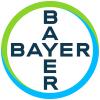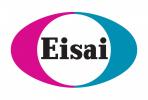A Phase I Study of CDX-1140, a Fully Human Agonist Anti-CD40 Monoclonal Antibody as Monotherapy or in Combination in Patients with Advanced Solid Tumors (CDX1140-01)
A Phase I Study of CDX-1140, a Fully Human Agonist Anti-CD40 Monoclonal Antibody as Monotherapy or in Combination in Patients with Advanced Solid Tumors (CDX1140-01)
This study involves many different types of tumors. Please contact us to find out if you have the tumor type to participate in this study. This study is looking at a specific monoclonal antibody activity on different types of cancer to assess the anti-tumor activity.
One way the immune system attacks foreign substances in the body is by making large numbers of antibodies. An antibody is a protein that sticks to a specific protein called an antigen. Antibodies circulate throughout the body until they find and attach to the antigen. Once attached, they can recruit other parts of the immune system to destroy the cells containing the antigen.
Researchers can design antibodies that specifically target a certain antigen, such as one found on cancer cells. They can then make many copies of that antibody in the lab. These are known as monoclonal antibodies (mAbs).
Monoclonal antibodies are used to treat many diseases, including some types of cancer. To make a monoclonal antibody, researchers first have to identify the right antigen to attack. For cancer, this is not always easy, and so far mAbs have proven to be more useful against some cancers than others.




























